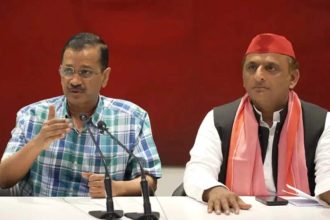Former United States Secretary of State Henry Kissinger, a pivotal figure in American Cold War history, passed away at 100 years old on Thursday, marking the end of an era. Renowned for his controversial yet impactful tenure, Kissinger, a Nobel Prize winner, served two US presidents and left an enduring imprint on the nation’s foreign policy landscape.
Kissinger’s demise was confirmed by Kissinger Associates Inc, stating that he passed away at his Connecticut residence on Wednesday.
Even in his centenary years, Kissinger remained engaged, attending White House meetings and authoring a book on leadership styles. Notably, he testified before a Senate committee on North Korea’s nuclear threat, showcasing an unwavering dedication to global issues.
In a surprising move this year, Kissinger made an impromptu visit to Beijing, meeting with Chinese President Xi Jinping, underscoring his enduring relevance in international affairs.
During the 1970s, Kissinger served as Secretary of State under Republican President Richard Nixon, playing a pivotal role in numerous global diplomatic initiatives.
A German-born Jewish refugee, Kissinger spearheaded initiatives that forged diplomatic ties with China, facilitated landmark US-Soviet arms talks, navigated relations between Israel and its Arab neighbors, and orchestrated the Paris Peace Accords with North Vietnam.
While Kissinger’s prominence waned following Nixon’s resignation in 1974, he retained considerable diplomatic influence during President Gerald Ford’s tenure and continued to advocate assertive foreign policy positions until his passing.
Despite accolades for his intellect and experience, Kissinger faced criticism, labeled by some as a war criminal due to his backing of anti-communist dictatorships, notably in Latin America. In later years, his global travels were constrained by attempts from foreign nations to question him regarding past US foreign policies.
The controversial 1973 Nobel Peace Prize, shared with North Vietnam’s Le Duc Tho — who declined it — remains steeped in controversy. The award triggered the resignation of two Nobel committee members and sparked inquiries into the US’s covert bombing of Cambodia.
Born Heinz Alfred Kissinger in Furth, Germany, on May 27, 1923, he fled Nazi persecution with his family, immigrating to the United States in 1938.
Adopting the name Henry, Kissinger became a naturalized US citizen in 1943. He served in the Army during World War II and pursued higher education at Harvard University, where he earned a master’s degree in 1952 and a doctorate in 1954. Subsequently, he spent 17 years as part of Harvard’s faculty.
Throughout this period, Kissinger consulted for various government bodies. In 1967, he served as an intermediary for the State Department in Vietnam, utilizing his connections to facilitate peace negotiations between President Lyndon Johnson’s administration and the Nixon camp.
After divorcing his first wife, Ann Fleischer, in 1964, Kissinger married Nancy Maginnes, an aide to New York Governor Nelson Rockefeller, in 1974. He is survived by two children from his first marriage.
Life beyond government service saw Kissinger establish a consultancy in New York, offering guidance to global corporate leaders. Engaging in board roles, participating in foreign policy forums, writing books, and providing insights on international affairs through media appearances defined his post-government career.
Following the September 11, 2001, attacks, President George W. Bush appointed Kissinger to lead an investigative committee. However, objections from the Democrats, citing potential conflicts of interest with his consultancy’s clients, led to Kissinger’s resignation from the position.

















